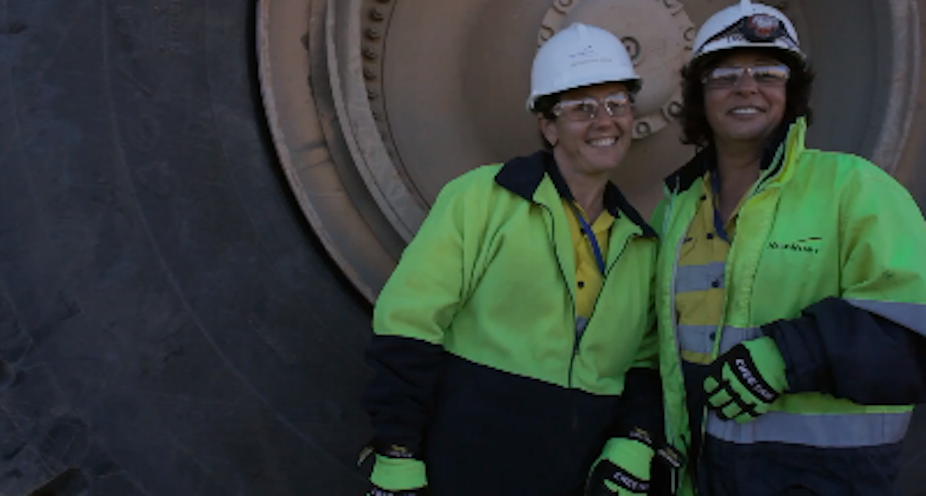Have you wondered why those chipper ads that share the personal stories of mining workers are still being rolled out on TV and at cinemas? In one, I recently learned about a sweet group of women whose lives are made a million times easier by the flexible working hours available at a mine. The environmental officer loves animals so much she wouldn’t kill a cockroach. Even their husbands are happier because they have great jobs: “You know what they say, ‘Happy wives, happy lives’,” one of the women reminds us.
Why is the mining industry still running these ads, when the Mining Resource Rent Tax was passed earlier this year, and the mining industry pretty much won the battle over what shape it would take?
Readers will remember the $22 million campaign against the Resource Super Profits Tax, spearheaded by the Minerals Council of Australia after the government announced the tax a week before the 2010 May budget.
It ran for only 53 days - and prior to the $25 million Carbon Tax - was the most expensive and effective campaign run by an industry against the government on a single policy issue, resulting in the original tax being dumped and contributing to the demise of Kevin Rudd as Prime Minister.
We can only assume that the mining industry is setting itself up for another battle; one which they saw coming a long way off, but the government seems to have been blind to.
Since late August, various economic forecasters have announced that the mining boom is over (though there is no certainly no consensus on this). There has been repeated media concern over a budget surplus “black hole”, amid calls for Treasurer Wayne Swan to explain how the government will pay for the promised NDIS scheme, the Gonski education reforms and the proposed federal dental program.
The Gillard government has banked on a nice strong stream of mining taxes coming in over the next few years. However, this income was never assured: it is a volatile stream of tax revenue.
In order to make the budget balance, the Gillard government will either have to change the basis of calculation for the mining tax – reneging on its agreement with the mining industry - or find revenue from some other sources. This would involve cutting services or raising taxes somewhere else. The mining industry is trying to ensure that the government chooses the second option.
As well as rolling out advertisements, miners have invested heavily in the film industry. The 2011 Australian film, Red Dog, for instance, was substantially financed by the mining industry. The characters, who work for Hamersley Iron (a wholly-owned subsidiary of Rio Tinto), are roguish and likeable. The cinematography sweeps across the red Pilbara landscape, depicting mines as part of the raw beauty of the landscape. The film was the largest grossing Aussie-made film for 2011 and ranks 11th in takings in historic terms amongst all Australian films.
The mining tax isn’t just about increasing revenue, it is also aimed at creating a more balanced economy and overcoming the “Dutch disease” which occurs when a resource boom pushes the dollar up, hurting other industries which can’t compete internationally.
Films like Red Dog and the “This is Our Story” ads, like the one I watched at the cinema, far more effectively counter the argument that the Dutch disease needs to be addressed through taxation than the negative campaign we were bombarded by early in battle over the mining tax in June 2010.
They make the “real story” about the employees of mines, not the shareholders who most stand to lose from a tax on mining. The campaign avoids arguments about whether the mines are foreign-owned and are exporting profits.
The strategy creates a sense that the mining industry is integrated into Australian social fabric. It counters the idea that the mining industry is an “enclave” industry and builds an emotional resonance between viewers and the companies. By invoking the “Australianness” of the individuals who work in the mines, we form intimate and direct relationships with people we identify with, and mining companies lay an implicit claim to the mineral assets that lie under Australian soil.
If it wants to alter the mining tax to help balance the budget, the Gillard government is going to have to be incredibly smart to counter the ground work that the mining industry has been laying for the last two years.

